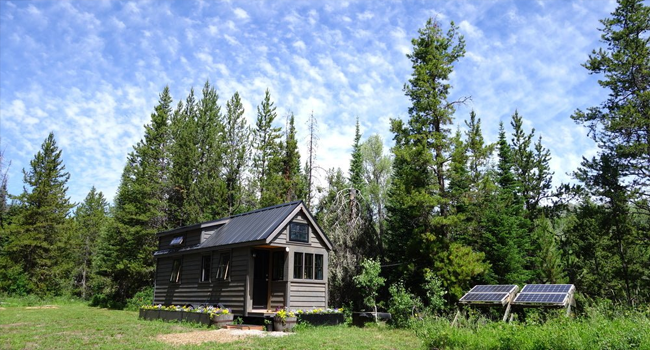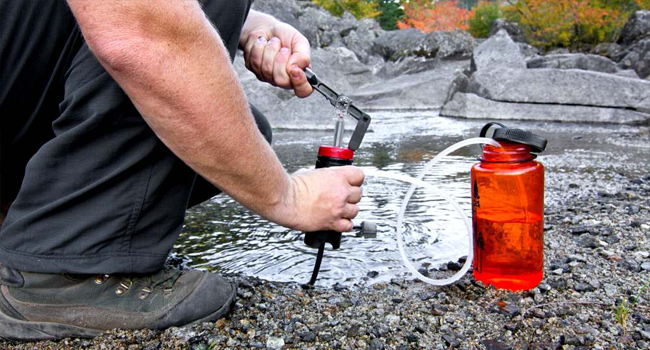
Embarking on an adventure toward sustainable living is a transformative and rewarding undertaking. Whether you are influenced by a preference to reduce your environmental impact, live a more fit way of life, or reconnect with nature, embracing sustainable residing requires a hard and fast of essential abilities. This novice’s guide objectives to offer insights into the vital talents you need to realize to begin your sustainable dwelling journey.
1. Understanding Sustainable Living:
At the core of sustainable dwelling is deep information on the environmental, social, and financial effects of day-by-day alternatives. Begin by teaching yourself the ideas of sustainability and the triple bottom line concept—balancing environmental, social, and monetary considerations. Explore the interconnectedness of ecosystems, the significance of biodiversity, and the position of individuals in creating tremendous trade.
2. Mindful Consumption:
One of the foundational principles of sustainable residing is conscious and conscious intake. Evaluate your purchasing conduct and choose products with minimal environmental impact. Consider elements including the product’s lifecycle, fabric sourcing, and ethical production practices. Embrace a minimalist mindset specializing in first-class overamount and avoiding needless waste.
3. Energy Conservation:
Reducing energy intake is a key thing of sustainable dwelling. Start by implementing energy-green practices in your house, such as using LED mild bulbs, turning off home equipment when unused, and investing in strength-green appliances. Consider renewable strength sources, like solar panels or wind generators, to lower your reliance on non-renewable power.
4. Waste Reduction and Recycling:
Minimizing waste is essential to sustainable residing. Practice accountable waste disposal, compost natural count, and recycle substances whenever possible. Please educate yourself on nearby recycling packages and discover creative ways to repurpose gadgets rather than discard them.
5. Sustainable Transportation:
Evaluate your transportation choices to reduce your carbon footprint. Consider taking walks, biking, carpooling, or using public transportation. If possible, discover electric or hybrid motors. Sustainable transport reduces environmental impact and promotes a healthier and more active way of life.
6. Water Conservation:
Water is a precious resource, and sustainable living entails conscious water management. Implement water-saving practices, including fixing leaks, using water-efficient home equipment, and harvesting rainwater for non-potable uses. Embrace xeriscaping and different water-efficient landscaping strategies to minimize water consumption in outside areas.
7. Eco-Friendly Food Choices:
Adopting a sustainable eating regimen is an essential aspect of eco-friendly residing. Choose domestically sourced, seasonal, and natural produce. Reduce meat intake and explore plant-based options. Support sustainable and ethical farming practices, and recall growing your meals, even though it’s just a small herb garden to your windowsill.
8. Sustainable Gardening and Agriculture:
If space permits, cultivate young organic and permaculture concepts. Learn about soil health, associate planting, and natural pest manipulation techniques. Sustainable gardening effectively presents fresh, nutritious produce and contributes to biodiversity and a healthier ecosystem.
9. Composting:
Composting is an easy but effective practice in sustainable dwellings. Convert kitchen scraps and yard waste into nutrient-wealthy compost that may be used to enhance soil fertility. Understanding the basics of composting, including the right stability of inexperienced and brown materials, ensures a successful and eco-friendly composting method.
10. Green Building Practices:
If you’ve got the opportunity to construct or renovate a home, explore green building practices. Consider power-green design, sustainable substances, and green production strategies. Incorporate natural lighting and airflow to lessen the need for synthetic power sources. Green construction is not the most effective; it lowers environmental effects and promotes healthier indoor surroundings.
11. Basic DIY and Repair Skills:
Developing primary do-it-yourself (DIY) and repair talents is empowering in sustainable dwelling. Learn to fix clothing, repair family gadgets, and tackle easy home upkeep. Extending the existence of merchandise via repairs reduces the call for brand-new resources and minimizes waste.
12. Environmental Conservation and Restoration:
Engage in sports that contribute to environmental conservation and recovery. Participate in neighbourhood easy-up activities, tree planting projects, or habitat recovery projects. Understanding the significance of retaining natural ecosystems and actively contributing to their well-being is a significant part of sustainable dwelling.
13. Conscious Consumerism:
Become an aware patron using supporting agencies and brands that prioritize sustainability. Research agencies’ environmental and social practices and select merchandise with green certifications. You contribute to a marketplace call for accountable and ethical merchandise by aligning your purchasing energy with sustainable values.
14. Community Engagement:
Sustainable dwelling extends past man or woman actions to community engagement. Connect with like-minded individuals and local sustainability tasks. Join community gardens, attend environmental activities, and actively participate in sustainable practices discussions. Building a supportive network enhances the impact of sustainable living efforts.
15. Mindfulness and Well-being:
Incorporate mindfulness practices into your day-by-day recurring to enhance average well-being. Whether through meditation, yoga, or time in nature, mindfulness fosters a deeper reference to the surroundings and promotes a balanced and fulfilling lifestyle.
16. Eco-Friendly Travel:
When visiting, prioritize green options. Choose destinations that guide sustainable tourism, opt for lodges with green certifications, and discover low-impact transportation choices. Being conscious of the environmental impact of the journey contributes to a more sustainable international tourism enterprise.
17. Renewable Energy Awareness:
Stay knowledgeable about renewable power improvements and alternatives. Understanding the blessings of sun, wind, and different renewable power sources empowers you to make informed decisions approximately incorporating easy power into your lifestyle. Stay updated on rising technologies and incentives that promote renewable strength adoption.
18. Sustainable Fashion Choices:
Evaluate your cloth wardrobe picks and undertake sustainable fashion practices. Choose apparel crafted from eco-friendly substances, assist ethical and truthful alternate fashion brands, and embody an undying and flexible technique to personal style.
19. Environmental Advocacy:
Become an endorse for sustainability usingraising awareness of environmental troubles and promoting sustainable practices in your community. Whether thru social media, nearby activities, or educational tasks, your advocacy efforts contribute to a broader motion closer to a more sustainable and environmentally conscious society.
20. Continuous Learning and Adaptation:
Sustainable residing is a dynamic and evolving adventure. Stay curious, be open to new thoughts, and constantly train yourself on emerging sustainability practices. Embrace an attitude of model and development, spotting that small modifications together result in tremendous effects.
21. Carbon Footprint Calculation:
Understanding and calculating your carbon footprint is a critical step in sustainable living. Numerous online equipment assists you in estimating the environmental effect of your way of life alternatives, including power consumption, transportation conduct, and nutritional choices. Tracking your carbon footprint presents insights into regions wherein you could make more sustainable selections and reduce your usual environmental effects.
22. Renewable Energy Adoption:
Consider incorporating renewable power resources into your day-to-day existence. Put money into sun panels for your home or discover network sun packages. Supporting and using easy alternatives reduces greenhouse gasoline emissions and promotes a transition toward a more sustainable electricity landscape.
23. Ethical Investment Practices:
Explore moral and sustainable investment options. Align your economic portfolio with your values with the aid of helping businesses and finances that prioritize environmental, social, and governance (ESG) standards. Ethical making an investment channels resources in the direction of organizations that can be devoted to sustainable practices, thereby influencing wonderful trade in the company area.
24. Mindful Water Usage:
Beyond conservation, working towards conscious water usage entails being aware of your everyday water behaviour. Consider installing water-efficient appliances, restoring leaks promptly, and discovering rainwater harvesting systems. By adopting mindful water practices, you contribute to the responsible stewardship of water resources and guide sustainable water control.
25. Participate in Local Initiatives:
Engage with local sustainability initiatives and organizations. Attend community conferences, be part of environmental corporations, and actively participate in initiatives that sell sustainable practices. Local engagement fosters an experience of shared obligation and encourages collaborative efforts toward developing a greater sustainable and resilient network.
26. Renewable Transportation Choices:
Extend your sustainable transportation picks by exploring renewable options. If possible, keep in mind electric-powered motors or hybrid cars. Alternatively, prioritize taking walks, cycling, or using public transportation to lessen your reliance on fossil fuels and decrease air pollutants associated with conventional commuting strategies.
27. Environmental Education:
Become a suggestion for environmental training within your network. Share your know-how and experiences with sustainable residing via workshops, shows, or online structures. By instructing others approximately the importance of sustainability, you contribute to a collective know-how and encourage tremendous alternatives inside your social circles.
28. Sustainable Event Planning:
If you’re concerned about event planning, whether or not for private celebrations or community gatherings, prioritize sustainability. Choose green venues, implement waste discount techniques, and opt for reusable or compostable materials. Sustainable event planning showcases the feasibility of eco-conscious picks in numerous components of daily existence.
29. Biodiversity Conservation:
Support projects that guard natural habitats sell reforestation, and propose for the upkeep of endangered species. Biodiversity conservation is imperative to retaining the health and resilience of ecosystems around the sector.
30. Circular Economy Practices:
Embrace the standards of a round financial system, which emphasizes reducing waste and maximizing resource efficiency. Choose merchandise with recyclable or biodegradable packaging, repair items in preference to replacing them, and take part in recycling programs. Adopting round economic system practices promotes a sustainable consumption and waste control approach.
31. Advocacy for Sustainable Policies:
Become involved in advocating for sustainable rules at the neighbourhood, nearby, and countrywide tiers. Support and participate in campaigns that sell renewable energy, waste discounts, and environmental safety. Your advocacy efforts contribute to creating policies that encourage sustainable practices on a broader scale.
Conclusion: The amateur’s guide to sustainable residing features a variety of capabilities that empower people to make mindful picks for a more green and ethical lifestyle. By cultivating attention to the interconnectedness of personal moves and their broader effect, you could embark on an adventure of fantastic trade that not simplest advantages the environment but enhances your standard well-being. Sustainable residing is only sometimes a vacation spot; however a non-stop and worthwhile manner of getting to know, increase, and high quality contributions to the planet.






